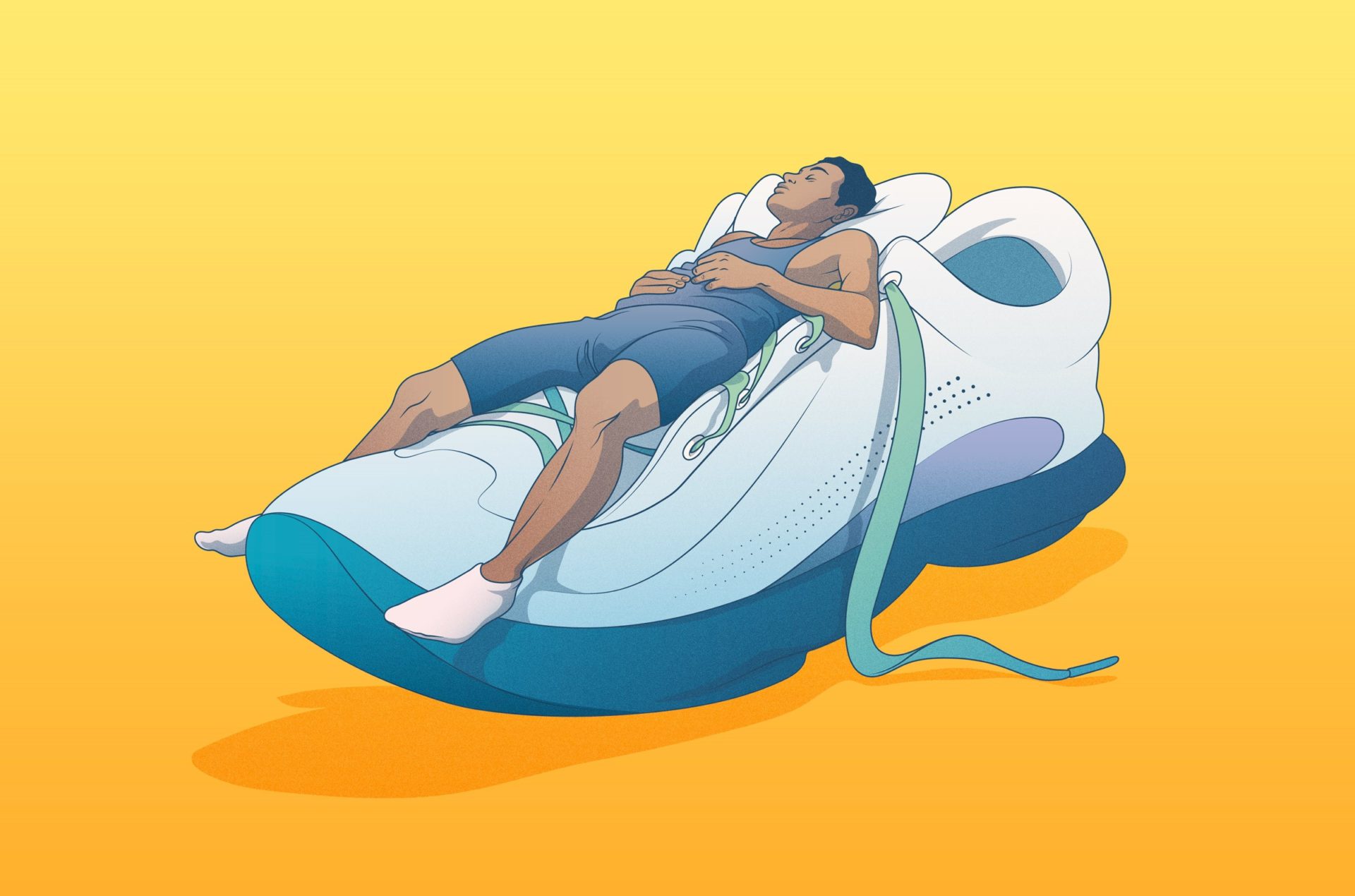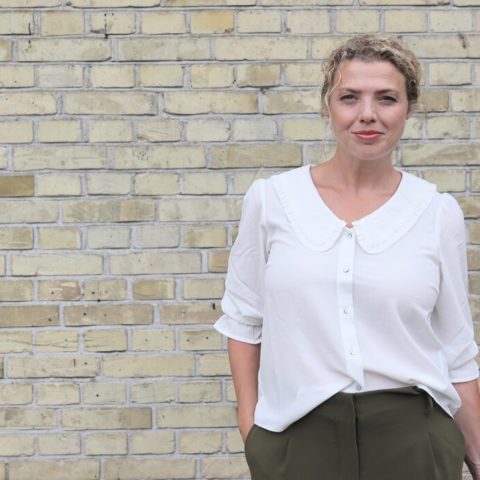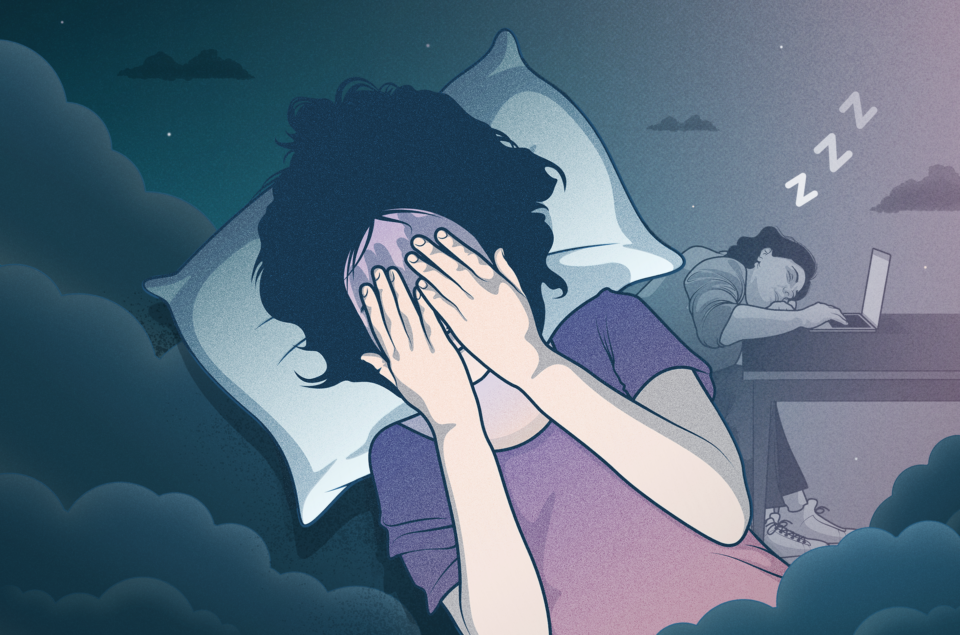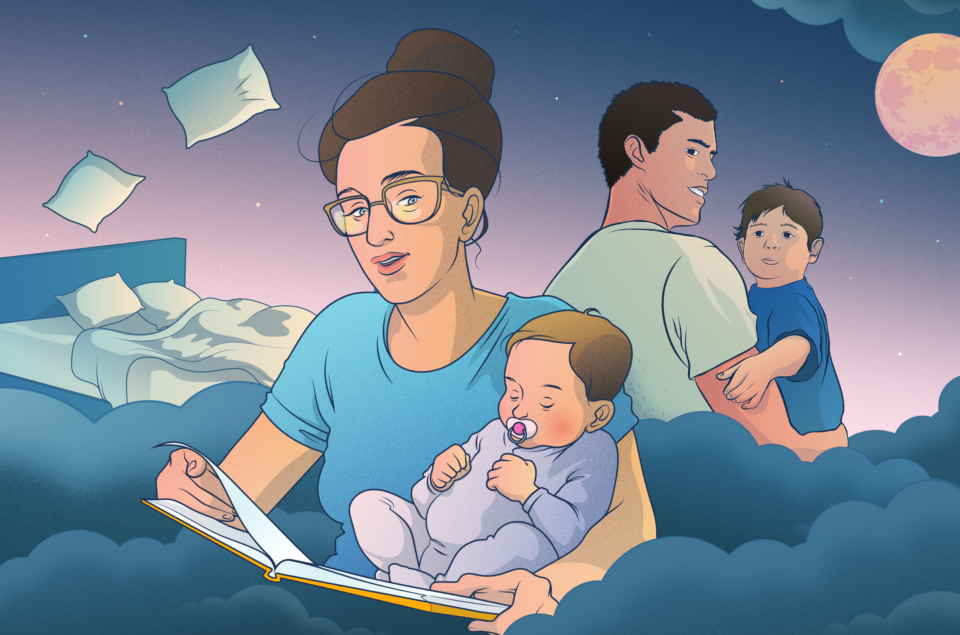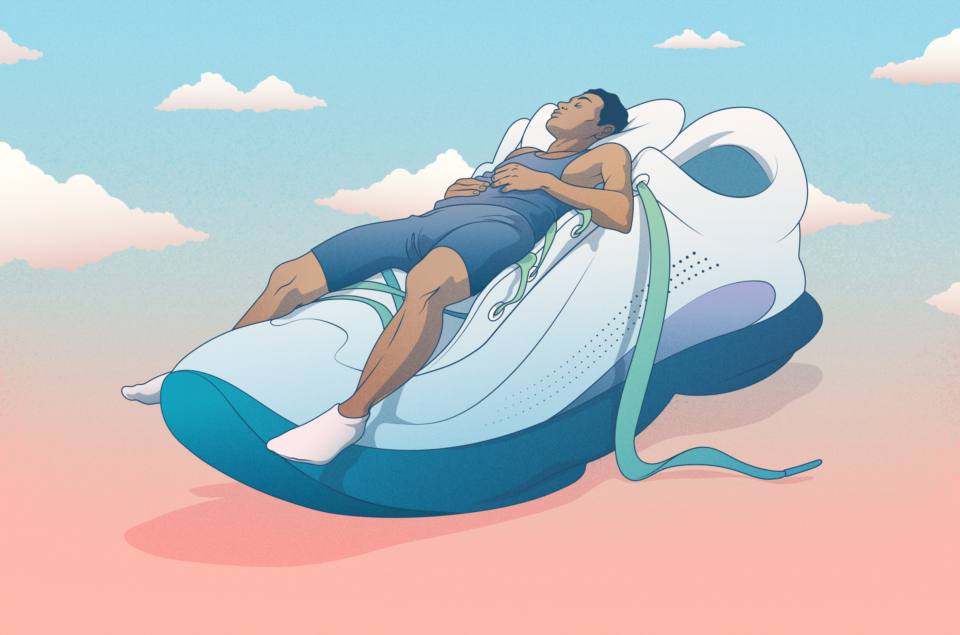You know the feeling of missing a few hours of precious sleep. That feeling of just being ‘off’. It can be downright demotivating or leave you feeling exhausted with every squat you make. But should you exercise when sleep deprived? And how do you combat sleepiness to find motivation to start exercising more?
In this series, we follow our very own sleep expert, Ph.D. and clinical psychologist Li Åslund, on her journey back to better sleep during her third maternity leave. Sometimes even sleep experts need better sleep, so she decides to spend the next 60 days getting back into running. Along the way, she discovers the many ways exercise improves our sleep and how sleep helps us perform better during workouts, reach our desired results, and keep us motivated.
- How do exercise and sleep affect each other?
- Is 6 hours of sleep enough to build muscle?
- Lack of sleep and exercise: should you exercise if you feel run down?
- How to fight sleepiness and find motivation to work out
- Summary FAQs
How do exercise and sleep affect each other?
Among the countless recommendations for improved sleep, nothing beats physical activity. The bidirectional relationship between sleep and exercise, that is, the way the two affect each other, means that regular exercise can alleviate sleep-related problems, and that in turn, poor sleep can contribute to lower physical activity levels.
It is not fully conclusive that better sleep alone promotes a higher level of activity. But a good night’s sleep often leaves you feeling energized and motivated to work out, promoting better sleep.
As a clinical psychologist, Li is fully aware of the benefits of exercise and overall health: “One of the first things I ask new clients is if they exercise on a regular basis. And if they don’t, I strongly encourage them to start”, she says and continues, “So I decided to get back into running. And I hoped that this somehow would be the way back to better sleep.”
The benefits of exercise for sleep
Li found herself more sleep deprived than ever during her third maternity leave:
“My sleep was lousy due to my baby waking me up and my physical capacity was completely lacking as I had spent the last two years either pregnant or with a baby by my side. Yes, I could have prioritized my own health and well-being more during this time. But I didn’t.”
After her first slow jog of the challenge, Li feels great.
“Slowly my body starts to adjust to the fact that it’s running. It feels good to be back on the road! In the evening my body feels tired, and I fall asleep as soon as my head hits the pillow.” Li’s diary, Day 2.
It has long been established that people who get their heart pumping regularly have fewer sleep problems. Furthermore, they are less likely to develop sleep issues later in life.
But why is exercise sometimes the best sleep medication?
- Exercise increases the amount of time spent in slow wave (deep, restorative REM) sleep.
- Exercise helps decompress and clear the mind with chemicals that relieve signs of stress, anxiety and depression (well-known sleep disruptors).
- Exercise or simply being active increases our sleep drive by tiring us out.
- Exercise in daylight helps realign our internal body clock which can cause insomnia if misaligned.
- Exercise improves sleep indirectly by improving overall health and decreasing the risk of excessive weight gain which in turn lowers the risk of developing obstructive sleep apnea (OSA) and restless leg syndrome.
- The benefits of exercise are self-reinforcing in that exercise improves your sleep which improves your energy levels and motivation to keep on exercising.
The best part is that you can often start feeling the results even after just one session of 30 minutes of moderate exercise. And it only gets better. Studies have shown that people suffering from chronic insomnia fall asleep up to 13 minutes faster and stay asleep 18 minutes longer 4 weeks after starting regular exercise.
Is 6 hours of sleep enough to build muscle? Why sleep is important to your workout
Simply put, muscle growth happens when exercise strains your muscle cells which then activates your body to repair the damaged cells through growth hormones and protein synthesis (muscle protein build). The release of these hormones is vital for not only muscle building, but for muscle repair, bone growth and fat burning.
7-9 hours of sleep is recommended if you want to build muscle because:
- 70% of the restorative growth hormones are naturally released during deep sleep (REM sleep).
- Adequate slow wave, or deep sleep, is usually only obtained with 7+ hours of sleep for most adults.
- Sleep duration of 6 hours or less at night has been linked to poorer muscle strength in men compared to sleep duration of 7-8 hours.
- Adequate sleep is needed for restoring other important functions that are particularly important to high performing athletes such as memory function and learning capabilities, motivation and inflammation during injuries.
Lack of sleep and exercise: should you exercise if you feel run down?
On one hand, no. Hitting the gym if you barely hit the pillow is usually not recommended since little sleep means less energy to push through a workout. You will get exhausted faster, have slower reaction time and decision making skills and increase your risk of injury. In addition, lack of sleep decreases your immune system, making you more susceptible to illness.
This may not mean much for a slow jog or walk around the block (low intensity activity is always recommended!). But for intense training, team sports and competing athletes involved in sports requiring speed, tactical strategy, and technical skill, lack of sleep is not your friend.
On the other hand, if you are sleep deprived because you struggle to fall asleep night after night, fitting in some moderate exercise can help you spend more time in deep sleep, reduce pre-sleep anxiety, and combat insomnia.
How does lack of sleep affect exercise performance?
Little or no sleep has been linked to poor running performance and we know that increased deep sleep can improve physical performance by up to 9%.
But sleep deprivation also plays tricks on your motivation which affects your performance.
“Sleep definitely has an influence on my running. I feel that sleep deprivation has a bigger negative impact on my motivation than it does on my actual performance. But that is hard to confirm since I rarely have the motivation to run if I’m too tired,” Li points out.
Li’s observation corresponds to the notion that feeling sleepy while working out after one bad night gives the perception of lower endurance performance which affects actual performance.
So, if you feel that you are not going to be able to give it your best, your physical efforts will more than likely reflect that. And your efforts will feel harder than usual. If you even get as far as to put on your training shoes, that is.
How to fight sleepiness and find motivation to work out
As already mentioned, the psychological effects of sleep deprivation are not to be ignored. It not only affects our performance on the treadmill and at work, but also leaves most people feeling too fatigued and low on energy to even engage in any physical activity.
“In order to maintain good motivation, it is important to prioritize getting enough sleep. This may involve setting a regular bedtime, creating a relaxing bedtime routine, and creating a sleep-friendly environment. By getting enough sleep, you can improve your overall health and well-being, which can help to maintain good motivation”, mentions Li.
But what if the cause for sleep deprivation is out of your control?
Sometimes, getting more sleep can be hard to achieve if other factors than your own behavior are keeping you awake. Such as a crying baby.
“I just had the worst night in a long time where I woke up literally every 30 minutes, caring for a baby with fever and coughing. In the morning, it felt like I hadn’t slept at all. But, I wasn’t going to let this get to me, and I decided to put on my running shoes and head to the forest.” Li’s journal, Day 7.
If you find yourself in a zombie state after a sleepless night, napping or an early bedtime should definitely be your priority. That being said, regular exercise has been proven to help endure mental and physical stress (which sleep deprivation is). Finding a few minutes here and there to get the blood pumping remains a good remedy for sleep deprivation.
Remember, 30 minutes of moderate activity can make a big difference. A stroll with the baby, squats while brushing your teeth, stretches or yoga during baby’s tummy time, cleaning, etc. It all adds up. Sleep Cycle’s 13 daytime hacks guide gives you more ways to improve your sleep.
Li’s takeaway on sleep deprivation and exercising
Although it was difficult to run while tired, Li’s biggest challenge was lack of motivation to actually do it. But there is no doubt as to the positive effects running has on her sleep.
“Physical exercise, and in this case running, do have an important impact on my sleep and well-being. It makes me tired at night and facilitates falling asleep and makes me feel good about myself,” she concludes.
Track how your exercise improves your sleep quality with Sleep Cycle
Coming soon – Follow Li as she explores how lack of sleep affects the risk of injury.
Summary FAQs
How does exercise affect sleep and vice versa?
The bidirectional relationship between sleep and exercise, that is, the way the two affect each other, means that regular exercise can alleviate sleep-related problems, and that in turn, poor sleep can contribute to lower physical activity levels.
What are the benefits of exercise for sleep?
Exercise is one of the best sleep medications because it increases the amount of time spent in restorative sleep, relieves stress and anxiety, helps realign our internal body clock, lowers the risk of sleep apnea and other sleep disorders.
Is 6 hours of sleep enough to build muscle?
7-9 hours of sleep is recommended if you want to build muscle because restorative sleep is usually obtained after 7+ hours of sleep for most healthy adults.
Should you exercise when sleep deprived?
Hitting the gym if you barely hit the pillow is usually not recommended since little sleep means less energy to push through a workout. You will get exhausted faster, have slower reaction time and decision making skills and increase your risk of injury.
How does lack of sleep affect exercise performance?
Little or no sleep has been linked to poor running performance and we know that increased deep sleep can improve physical performance by up to 9%.
